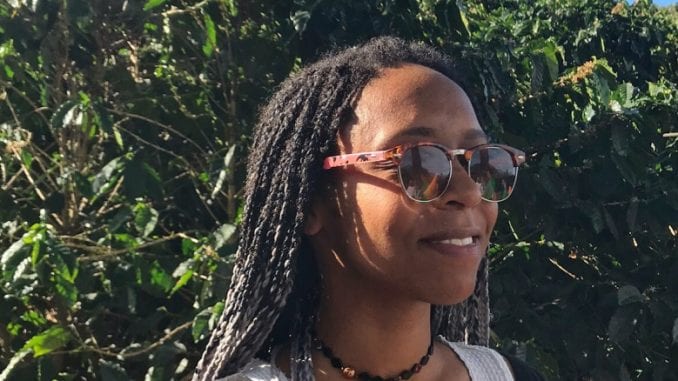
Alicia Adams found coffee as a way to leave a boring desk job; now she’s the director of coffee for Red Bay Coffee in Oakland, Calif. We talk about her beginnings as a barista, life-changing coffee moments, and the ever-elusive search for sweetness.
BY ASHLEY RODRIGUEZ
BARISTA MAGAZINE ONLINE
Cover photo by Marcus Young
Alicia Adams has an excellent palate. When we first met, it was over a cupping table full of Yemeni coffees (brought by Mokhtar Alkhanshali), and she was able to point out the flavors you thought you tasted, but didn’t quite know or have a name for. In her job as director of coffee for Red Bay Coffee in Oakland, she tastes and talks about coffees every day. Here she talks to us about how she got her start in coffee, her approach to tasting and sourcing, and why new baristas should focus on every educational opportunity they can get their hands on.
Ashley Rodriguez: Did you grow up with coffee in your life? Do you have any early memories of drinking coffee?
Alicia Adams: I grew up in Connecticut drinking Dunkin’ Donuts. My parents would drink coffee every night after dinner, and as soon as I was old enough to reach the automatic drip coffee pot, I would brew the coffee and add cream and sugar. They each take their coffee differently, so I got into the habit of tasting them first. I was probably 11 or 12 when I started drinking coffee.
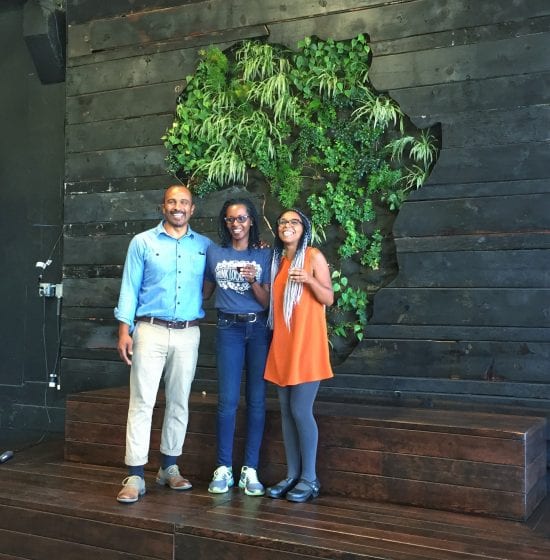
AR: What was your first coffee job? What did you learn from that position?
AA: My first coffee job was at a café in Oakland when I was 25. I left a career in Boston as a clinical laboratory scientist and moved to San Francisco the year before on a whim. I found the café under construction near my house, and out of desperation having just been fired from a desk job I had no interest in, I popped my head in and asked if they were hiring. They told me to come back the next day; and the day after that I was being trained as a barista serving Blue Bottle Coffee. At this job I learned how to pull shots on a two-group lever-operated Astoria, and that it’s always worth taking the time to dial in the espresso.
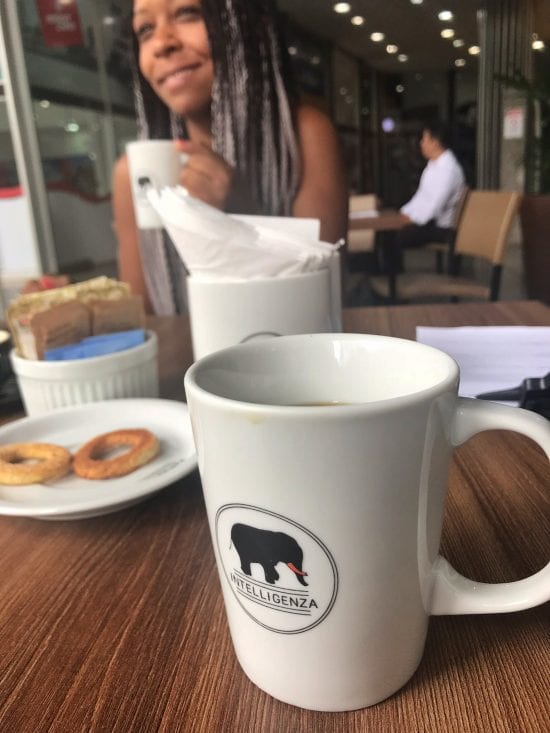
AR: Could you talk a little about your career trajectory? You’re now the director of coffee for Red Bay—how did you get there?
AA: For the first few years working a multitude of service jobs, I had very little trajectory or plan. I picked up coffee and barista training fairly naturally, and I used that skill set to my advantage to get hired. It wasn’t until 2013 that I met some baristas in my neighborhood (Lake Merritt in Oakland), and from there started volunteering every month at the latte art throwdowns held by the BACC (Bay Area Coffee Community). Finding the coffee community was the turning point for my career. I basically met all my current peers, friends, and mentors in the industry that year who encouraged me to apply for a job at a roastery to focus on coffee. I applied to Blue Bottle twice (I got rejected the first time). I spent one year as a barista, and another as a lead barista.
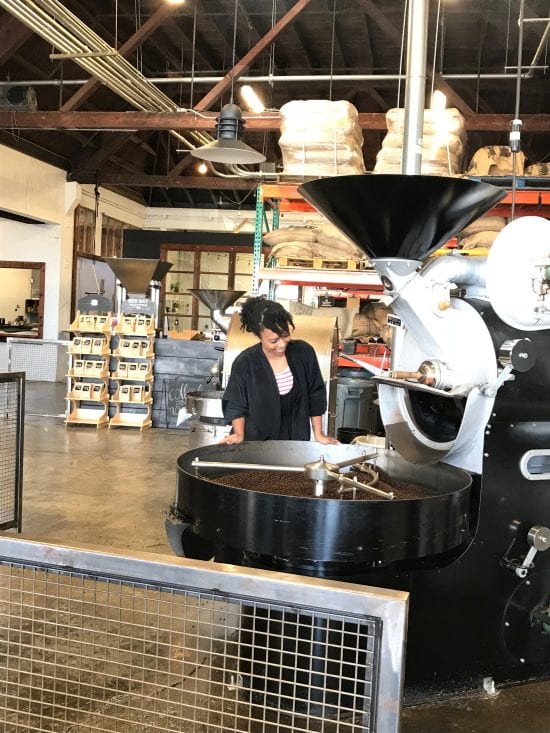
After that I took a part-time temporary position as a quality control specialist and Volcafe Specialty, and that turned into a full-time permanent position. Working at Volcafe exposed me to a whole new level in the supply chain, and deepened my understanding of the logistics and actual scale of the coffee industry. I think that the word was out that I was not relocating to the East Coast with the company and that I was casually looking for a job, and then the director of coffee at Red Bay approached me about interviewing for the position and becoming his replacement.
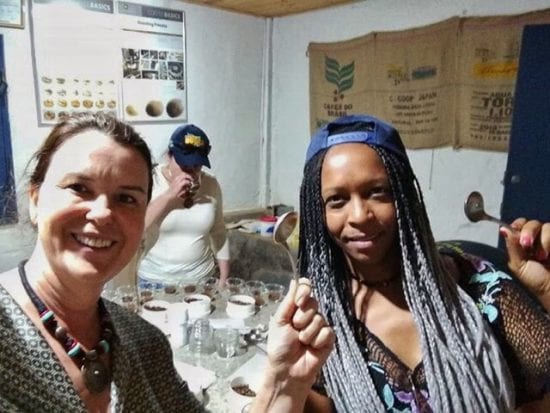
AR: What does your day-to-day look like?
AA: My days tend to vary depending on what I’m working on that week. I always start the day off with an outline of a plan in my notebook with a short-term to-do list of priorities, which can consist of sample roasting, inventory management, developing profiles for new coffees, or just on-boarding coffees into our production in general. Mostly everything gets scheduled around production cuppings and meetings. For my longer-term projects, I shuffle through them and work on them a little at a time. Right now, my main two projects are creating and updating our QC and training protocols as we expand into the future.
AR: A big part of your job is to taste coffee—how do you approach new coffees? What are you looking for?
AA: When I’m sourcing for a new coffee, I’m always thinking about potential, quality, and approachability. For Red Bay, I’m looking for complex and structured sugars. Acidity is important but it doesn’t hold as much value to me if it is not balanced by sweetness. I’ve found that no matter where someone is in their coffee tasting journey, natural sweetness is always appreciated whether it’s simple or complex, whereas an extremely complex and bright coffee takes a bit more of a trained palate to understand. Part of Red Bay’s mission is strongly rooted inclusivity, and I feel that our coffee offerings and roasting style should reflect that.
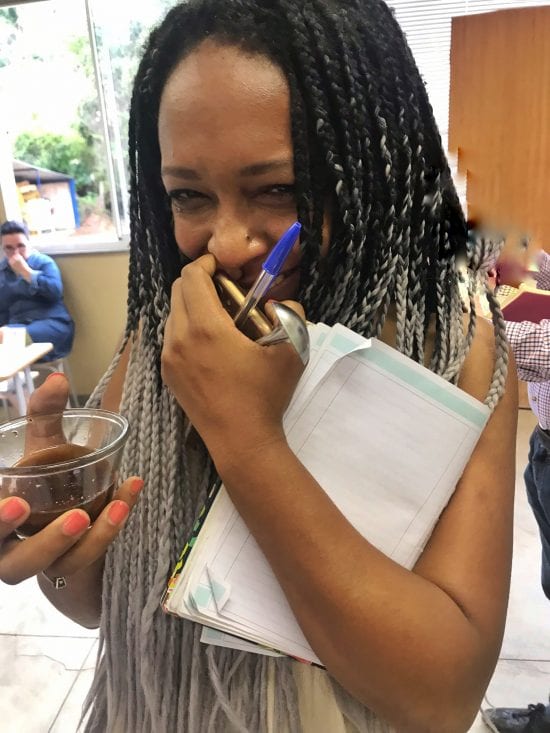
AR: How would you describe yourself to others? What do you do in your spare time?
AA: Honestly, I’m all over the place. I’m a Gemini. I am a coffee and science nerd. I love to cook and bake. When I’m not tasting coffee, I’m tasting everything else. When I first moved to San Francisco I was a content producer for a music/culture blog interviewing artists and musicians for fun. Music and art still are and always have been an important part of my life. I have my motorcycle license and 1978 Honda Twinstar named Little Blue. I’ve only ever been fired from desk jobs. I’m a bon vivant and a free spirit, but the East Coaster in me still loves organization and structure. I’m always teaching myself new things and gaining new interests, but coffee is the only thing that really truly stuck.
AR: Do you have any memorable coffee moments? Any stories to share?
AA: This is difficult to answer since there’s so many to pick from. But I will say that I actually cried at a cupping in Brazil last year in Matas de Minas because the coffee was so beautiful, and it was a key moment for a small group of farmers finally getting the sponsorship and organization they needed in this region hand-harvesting some of the best coffee I’ve ever tasted. My perception of Brazilian coffee and its potential has completely changed.
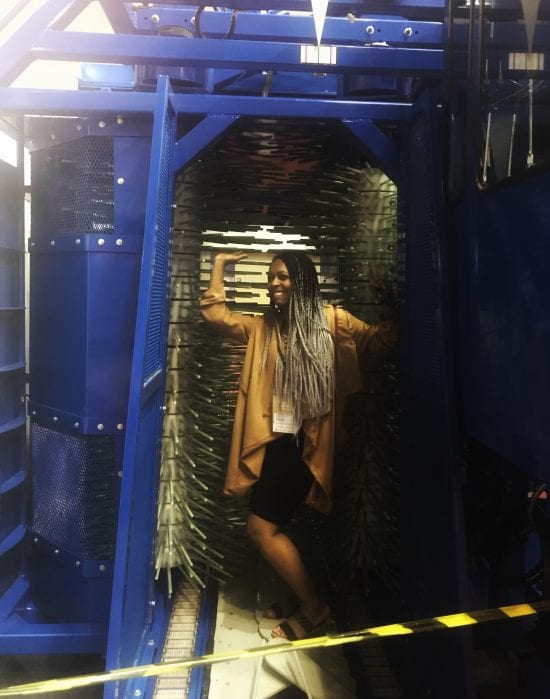
AR: I’m interested in advice you have for others who want to work in your field, but I’m also interested in the bad advice people have given you along your coffee career. Could you give insight on both?
AA: My advice is to learn as much as you can wherever you work regardless of the position. You can most definitely work your way up with some determination and patience. Volunteering to help out with events and competitions is always a good idea if you’re looking to take the next step connecting with other industry professionals. I haven’t received bad advice; however, I have been discouraged by superiors in the past to learn new things. There’s always something to learn about coffee. If your employer or manager is not supportive of your coffee education, formal or informal, they do not have your best interest [in mind].
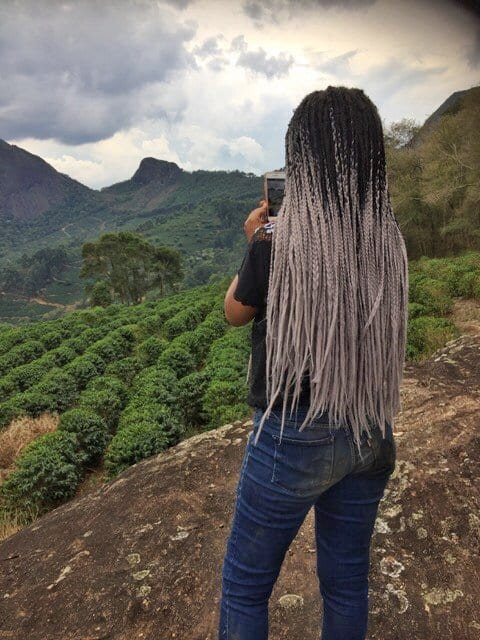
AR: What feels important to you in coffee? Where do you want to see the industry grow?
AA: Farmers’ quality of life is most important to me. Working directly with farmers and co-ops paying them a fair price for coffee and really only using import companies to carry the coffee is much more rewarding than purchasing spot coffees. I would like to see more small-batch coffee roasters working together, filling containers to import ethically sourced coffee in a joint effort to disrupt the colonial import/export structure of this business that is severely outdated.

